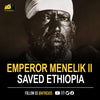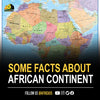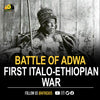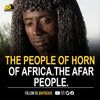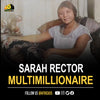As the 10th most-visited website on Earth, and the largest repository of human knowledge there is, school curriculums and even entire worldviews can be formed simply through reading Wikipedia.
However, when the city of Paris has more information contained in Wikipedia than the entire African continent, there is a significant risk of young Africans beginning to perceive home as a “single story.” Further, an enormous amount of content on Wikipedia about African culture, languages, geography, and more, is written by Westerners. The inevitable lack of cultural context inherent in the everyday experiences of Africans can lead to stereotyping again turning one small part of the African story into the whole story.
The WikiAfrica Education Program, founded by the Moleskine Foundation, is an effort to foster creativity and an interest in culture in African school curriculums by teaching students how to prepare and submit, as well as edit, articles on Wikipedia. Since 2006, the WikiAfrica Program has led students contributing 40,000 submissions, including articles, and also audio clips, edits, photos, and more. Notably, many of the most detailed of these submissions were in African languages like isiXhosa.
Co-founder of the Moleskine Foundation, Adama Sanneh, an Italian-born son of a Gambian/Senegalese father, understands that creativity creates culture, and culture is the force that changes society.A self-professed nerdy kid drawn to culture, art, and philosophy during his childhood growing up outside of Milan, he started the Moleskine Foundation in an effort to try and galvanize Africans into changing power dynamics on the internet and in their daily lives.
“We aim to inspire young people from the continent and beyond, and especially African language speakers, to transform themselves from passive knowledge consumers to active knowledge producers,” says Sanneh, who then explained the startling information gap between Paris and Africa.




